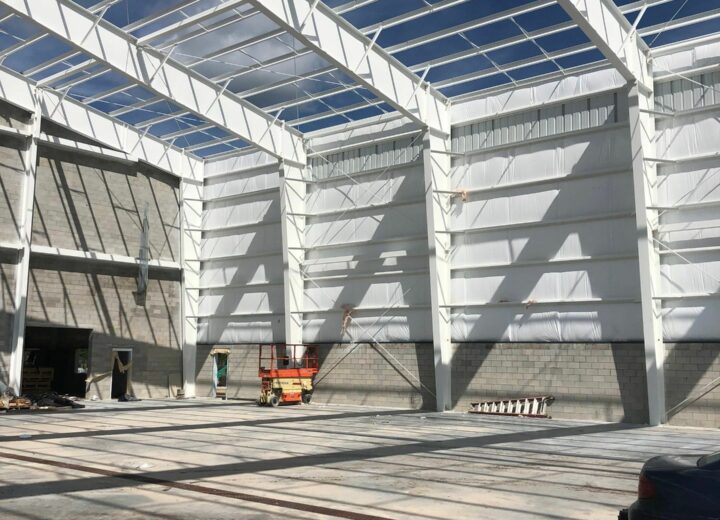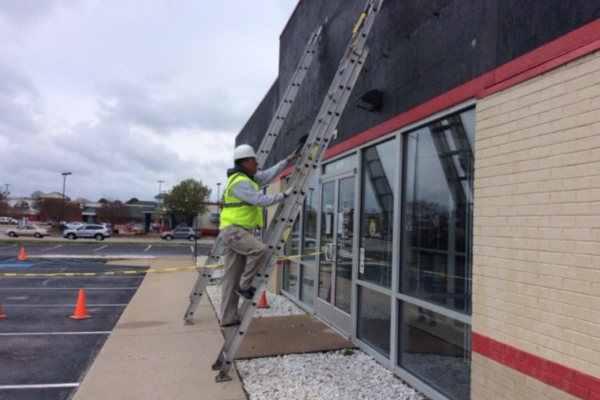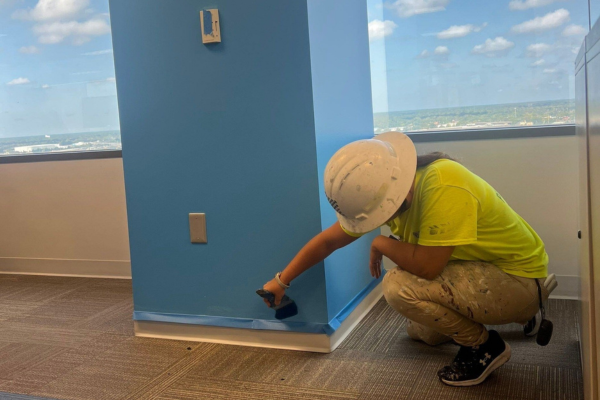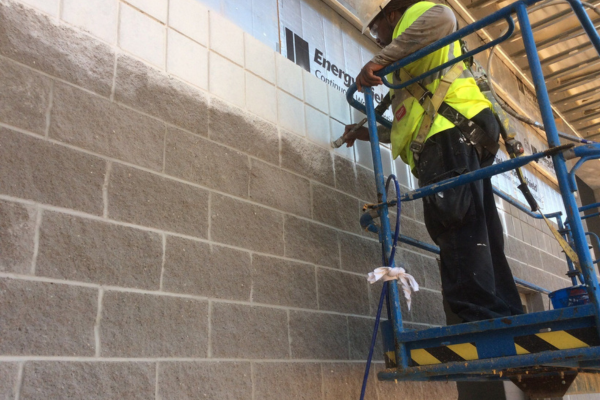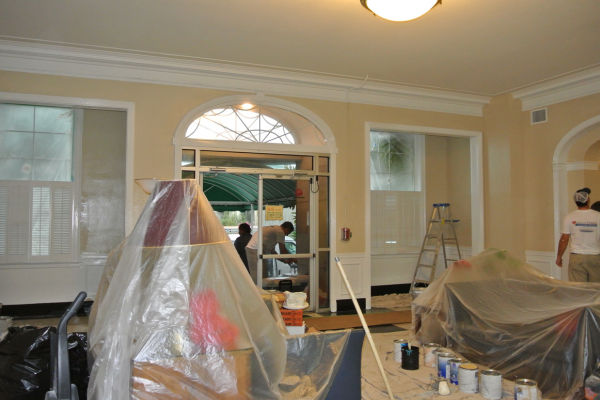 There are many floor coatings and treatments that can be appropriate in a commercial or industrial setting. Choice of flooring ultimately comes down to factors like the work environment, any special performance needs, cost per square foot, and the dimensions of the floor.
There are many floor coatings and treatments that can be appropriate in a commercial or industrial setting. Choice of flooring ultimately comes down to factors like the work environment, any special performance needs, cost per square foot, and the dimensions of the floor.
Over the last several years, epoxy flooring has become especially popular. Many facilities managers choose the durability of epoxy over treated concrete floors or don’t really consider concrete at all in their assessment. But it is important to remember that polished concrete flooring can be an ideal solution in some situations.
In fact, polished concrete is superior to epoxy flooring in some regards, especially as it relates to the treatment process. Because re-doing a floor is so much more costly and time-intensive than choosing the right option in the first place, it is essential not to overlook the value of polished concrete.
Here are some of its key benefits:
1. An End to Dusting and Efflorescence
Untreated concrete is strong, but it is vulnerable to certain kinds of damage and natural chemical reactions. Concrete is porous, so the process of salt migration (efflorescence) is always occurring. That, in turn, leads to dusting that can damage epoxies and other surface coating, problems resolved at the source by polishing.
2. A Stain-Resistant Flooring Surface
The porous nature of concrete is actually one of its most significant challenges, resulting in a substantial part of its lifetime maintenance costs. Polishing the concrete seals the surface and makes it more dense. This enables it to repel water, oil, and other surface contamination naturally even in the absence of special protection.
3. Better Reflectivity and Ambient Light
Greater reflectivity makes your safety painting more effective. It also offers long-term benefits for controlling your energy use. Overall, superior ambient lighting can make your facility look newer and cleaner, so it is more appealing to visit and work in.
4. Higher Levels of Slip Resistance
Like other forms of concrete, polished concrete is slippery when wet. In comparison to an untreated floor, however, it will offer greater slip resistance. These properties can be further enhanced with a treatment using glass beads or sand, improving its suitability for grip-sensitive environments such as a parking deck.
5. Cost-Effective Ongoing Maintenance
The overall effect of polishing your concrete floor is to cut the cost of ownership by thousands of dollars over several years. Aggressive scrubbing is not necessary to eliminate stains, due in part to the compact surface. Plus, you do not need to invest in waxing or stripping to maintain the characteristic sheen.
6. Generally VOC-Free and LEED Compliant
Volatile Organic Compounds are a major safety risk to both your team and the public. Although many newer coating products emit few or no VOCs, the most environmentally friendly options also tend to be pricey. With polished concrete, you rarely need to worry about introducing VOCs, so you can easily adhere to LEED rules.
7. Improved Effectiveness of Old Floors
One of the biggest reasons to treat your concrete floor is to extend the service life of the underlying slab. Both epoxy flooring and concrete polishing raise slab longevity. Polished concrete has excellent compressive strength and fights erosion from various sources. A mechanical polishing process can grind the top layer to refresh it.
8. Reduced Tire Abrasion and Associated Wear
If you are in an environment with high foot and vehicle traffic, polished concrete is one of the best possible flooring investments. Polished concrete stands up to large equipment like forklifts and resists skid marks and staining from smaller vehicles. Combined with a high traction sealant, it can perform reliably for years.
9. Minimal or No Disruption in Operations
Every floor coating and treatment process has its own requirements. For example, some paints require a primer layer and curing time after application. The time needed to polish concrete varies, but a dry mechanically polished concrete floor may return to service immediately after the process is done.
10. No Extensive Cleanup, Toxins, or Hazards
Businesses often put off extensive flooring projects because of the potential safety hazards. Concrete polishing uses no harsh or abrasive chemicals and produces no dangerous waste products. Even ventilation in the treated area is not as much of a concern. This means most projects can be finished in hours or days.
There’s No “One Size Fits All” in Polished Concrete Versus Epoxy
Since flooring decisions often come down to epoxy or polished concrete, be sure to talk to contractors who have ample experience with both. Either one makes for a strong flooring solution in most heavy-duty industrial or commercial settings. However, the specifics of your work environment and goals must be taken into account. Small details can often save or lose you thousands of dollars when it comes to a facility’s lifetime performance.

